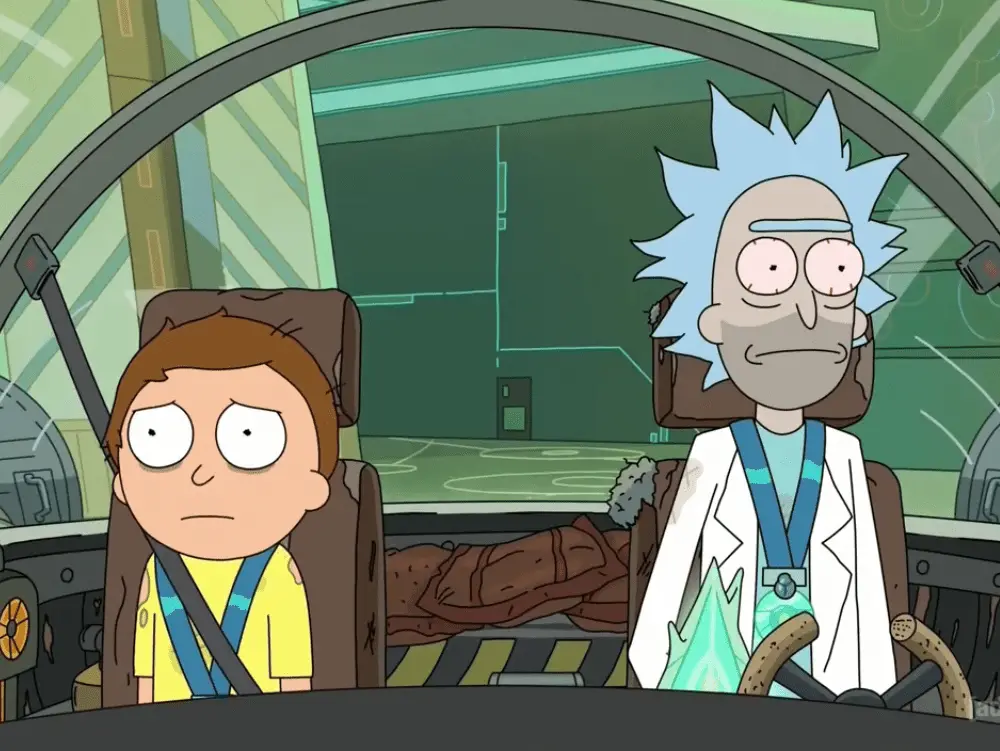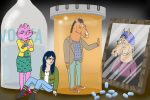Rick Sanchez, the titular character of the hit adult animated series “Rick and Morty,” is deeply flawed yet intriguing. As the show’s deuteragonist, it’s no surprise that fans love — and occasionally idolize — him despite his numerous flaws. Originally conceived as an exaggerated spoof of Dr. Emmett Brown (the whole show is a pseudo-parody of “Back to the Future”), Rick easily comes into his own as early as the latter half of Season 1 back in 2013.
Despite being the show’s “hero,” Rick has a laundry list of borderline villainous traits that directly impact him throughout the series, which the show’s creators never hesitate to use to portray him in a negative light. So why do such a surprisingly large number of people in the male 12-to-28-year-old demographic idolize such a character to the point that they alter their entire personality to match his? As is the case with the idolization of any person or character, it’s all about perceived power.
“Rick and Morty” centers on the exploits of Rick Sanchez, a nigh-immortal and omnipotent alcoholic mad scientist traveling the multiverse with Morty Smith, his grandson. Their adventures are sometimes accompanied by Morty’s sister, Summer; his mother and Rick’s daughter, Beth; as well as Morty’s hapless father, Jerry. The show takes place an indeterminate amount of time after Rick returns from decades of sci-fi adventures to Beth and her family after having abandoned her when she was a child. While Beth and Jerry’s relationship is implied to have been a bit tedious before Rick’s return, Rick’s seemingly open contempt for Jerry puts a strain on Beth and Jerry’s relationship and leads to family drama that takes up the B-plot of most episodes.
The A-plots are dedicated to Rick and Morty galivanting across planes of existence in service of Rick’s goals, which are ambiguous at best. Throughout Rick’s adventures he is portrayed as a self-obsessed misanthropic drunk, yet his status as “the smartest man in the universe” carries him almost effortlessly through numerous dangerous situations without much trouble. Of course, deep down, Rick has a great deal of affection for his grandchildren — especially Morty — but his multitude of insecurities typically prevent him from openly expressing his feelings unless they allow him to manipulate Morty into doing something dangerous for him.
At first glance, it’s easy to see why some people would be drawn to Rick. Who wouldn’t want to be an all-knowing, all-powerful science god? But the more the audience sees of Rick, the more the show’s creators focus on his unfavorable qualities. He pushes away everyone who cares about him because of his singular obsession with his own intelligence, and he openly scoffs at people whom he sees as inferior, which is basically everyone, including parallel-universe versions of himself. Yet people see these negative traits as positive, viewing his amorality and apparent lack of emotion as signs of strength.
Despite these “Rick and Morty” superfans’ online musings, in reality, the Rick seen by people who idolize him and the one made by the showrunners are completely separate and incomparable entities. The qualities Rick Sanchez fanboys — if referenced in the show, the writers might call them “Rickophants” — espouse as his best are the ones the showrunners have time and again portrayed as his most toxic. The Rick that superfans idolize is never wrong, anarchic and unrivaled in his mastery of all things. The one portrayed on the show is a broken husk of a man who hides his insecurities behind cynicism, alcohol and technobabble.
In the show, Rick is actually wrong fairly often, yet rarely does he come close to admitting it. He lives in a state of constant denial about his relationships and how the people closest to him actually see him. He frequently overestimates his own abilities and pays for his hubris dearly; at one point, he and Morty have to move to a new reality identical to their home reality because of a mistake that Rick made that resulted in the horrific mutation of everyone on Earth. But of course, they gloss over his negative qualities, just in case they inadvertently shed light on their own shortcomings.
The phenomenon of identifying with morally gray or amoral characters is not exclusive to “Rick and Morty.” Any character portrayed as powerful or untouchable in some way seems to inspire young men to model their personalities after them, from sleazy ad executive Don Draper in “Mad Men” to drug lord Walter White from “Breaking Bad,” or even criminal kingpin Tony Montana from 1983’s “Scarface.”
Despite the depravity exhibited by these characters — the latter two of which are outwardly murderous — people try to model themselves on those who exhibit strength. While that’s understandable, it’s interesting that people exclusively seem to choose alleged “alpha males” who frequently exhibit negative personality traits and often pay the price for their poor decisions. But those who idolize these characters willfully overlook that and disregard when the media the characters originated from directly state that the desired traits are negative ones.
It’s fascinating how people latch onto characters in the media they consume, especially when those characters are unquestionably flawed. But it’s possible that in the process of modeling their own personalities on these flawed characters, they will learn the lessons that their chosen characters repeatedly failed to.

















